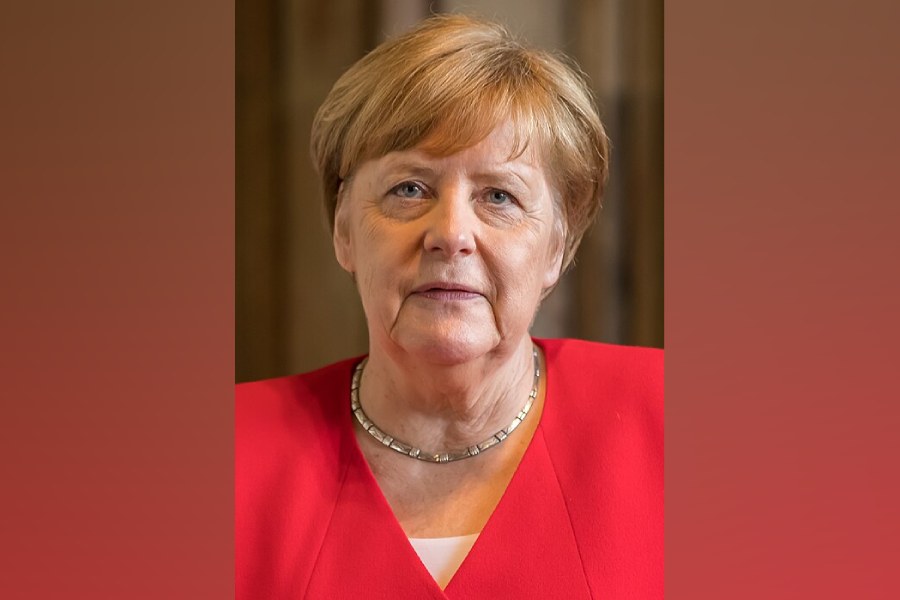Five NRI friends have come together to address a need Calcuttans living abroad with elderly parents back home have felt for long. Tribeca Care is the city’s first professionally managed one-stop healthcare platform at home.
For each of the five, the idea came from personal experiences. “Ten years ago my father became paralysed. Both my brother and I were abroad and my mother was alone at home. It was difficult for her to manage the post-operative care. This has been on my mind ever since. We are a sandwich generation, caught between responsibility towards parents and career opportunities. This is where a company can come in,” says managing director Tamojit Dutta, who quit his job with Deutsche Bank, London, to set up Tribeca.
The friends had planned to start the company in Bangalore but minister Firhad Hakim, whom they met in London, suggested they base it out of Calcutta.
“We aim to serve both the elderly and the ailing,” said director and chief strategy officer Elina Dutta, a former national creative director at advertising agencies like JWT, Lowe Lintas and Ogilvy, now based in Dubai. “Our range of geriatric care will cater to both physical and emotional well-being of patients. We also offer short-term home care for those recovering from surgeries or suffering from chronic health conditions.”
The Tribeca patient management system includes trained care workers, homecare devices, pharmacy products, therapy support and psychological care. “We are a one-stop solution to healthcare at home, including pharmacy products and doctor supervision, with care solutions matched to specific needs. And we are not an NGO but a social enterprise with a sound business model,” adds Tamojit.
The caregivers are professionally trained. “We are setting up training modules for nurses with help from geriatric associations. Our clinical director, Shibaji Saha, has been an intensive care specialist in a UK hospital for 10 years He plans to have National Health Services personnel over from England to train our personnel,” Elina said.
A pool of trained workforce is being created. While some specialise in dementia services and physiotherapy, others will be taught to keep charts and check health vitals of patients.
While Tamojit is dividing time between London and Calcutta, and Elina shuttling from Dubai, joint managing director Prateep Sen, an MBA from Columbia Business School, New York, has quit his Citibank, London, job and relocated.
“Our ayahs will be graded and their salaries decided according to their training and experience. An ayah of a higher grade will be perceptive enough to notice if the patient has not defecated for three days. She should also know when a situation needs to be red-flagged, our office informed and the children called,” Sen said.
Another problem area with ayahs from run-of-the-mill centres, Elina points out, is non-verbal communication. “When asked to fetch something or make a cup of tea, if the job gets done with a sullen face the patient will think twice before asking the nurse or the ayah to do it again. We will emphasise on soft skills so there is dignity and grace on both sides.”
Each patient will be assigned a relationship manager who will ensure that service standards are maintained. “He will visit the house and figure out the requirements. Thereafter, he will do a periodical monitoring. We will provide oxygen cylinders and medicines too wherever required. We are tying up with big hospitals like Medica and Fortis.”
Another important aspect of Tribeca Care is the companion service and emotional well-being programmes. “The elderly often develop dementia as they have no one to speak to. They do not want to leave home as they are scared of travelling alone. We have three packages. In one, the care-giver will take care of needs like laundry and ironing. In another package, he will accompany the patient to a movie or a restaurant or play carrom with. We have tied up with a mobile library for doorstep delivery of books. In the third, if the patient has a pre-existing medical condition, there will be regular doctor visits as well. Senior citizens who live on their own have a fear of loneliness. Our daily monitoring system will instil confidence in them,” says Elina.
The company has had a soft launch a few months ago and is already catering to around 80 patients. “We have a 93-year-old customer who has excellent domestic staff in place. But she needs someone to read her the newspaper, play bridge and ludo with her and talk to her in English. Expectations of patients, including hygienic standards, vary from patient to patient. We keep that in mind,” Prateep said.
“In the UK, the government takes care of the old. In the US, it is insurance-driven medical aid. Here individuals have to pay for their own care. Neither do they have facilities like a call to bring the grocery home. So private companies have to step in. The older population is increasing in India. By 2025, 12 per cent of the population will become geriatric, which numbers about 100 million-plus. We want to get the model right in Calcutta and then spread to other corners,” says Tamojit.
Tribeca Care can be reached at
www.tribecacare.com
enquiry@tribecacare.com
40277777











